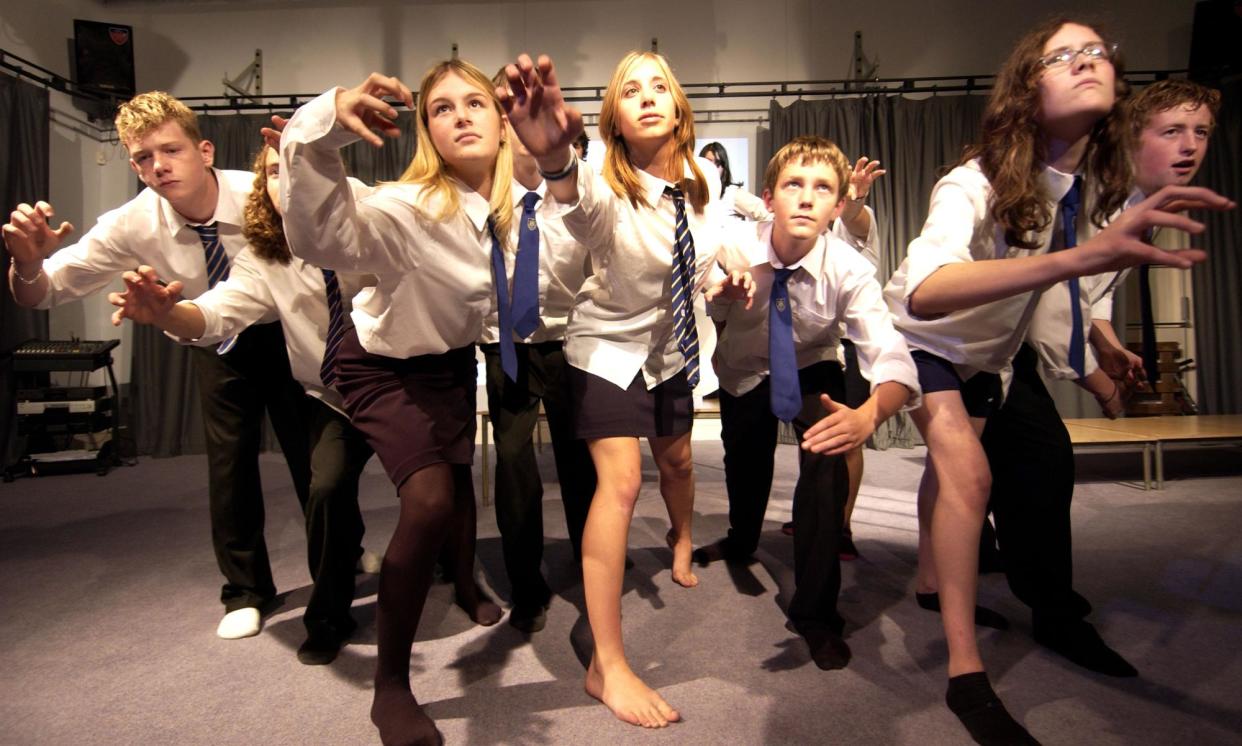Fewer pupils in England studying drama and media at GCSE and A-level

Fewer pupils in England are studying drama, media and performing arts at GCSE and A-level, while the popularity of statistics, computing, physics and maths has gone up.
Provisional figures for exam entries in England this summer, published by the exams regulator Ofqual on Thursday, also reveal a growing enthusiasm for modern foreign languages, which had been in long-term decline.
The number of French A-level candidates has grown by 8% over the last year, Spanish by 2.3% and German by 3.1%, the last albeit from a very low base, taking numbers up to 2,280. The biggest jump at A-level is in further maths, where entry numbers have shot up by almost 20%.
Drama, in contrast, is down 5.8% at A-level and 0.8% at GCSE, while entries for sociology A-level have declined by 6.9%, media is down 1.3%, geography by 3.9% and psychology by 2.4%.
At GCSE, the number of entries for performing arts is down 3.1% to just 6,675 candidates across England, while citizenship studies is down 3.9%. At the opposite end of the scale, statistics entries are up 20.3%, engineering 17.4% and business studies 11.2%.
Computing continues to attract growing numbers of students, with provisional GCSE entries up 6.2% on last summer and A-level entries up 11.8%.
Overall, provisional entries for GCSEs in England have gone up by 4.8% since last summer and for A-levels by 2.4%, in line with population growth.
Paul Whiteman, the general secretary at the NAHT school leaders’ union, said the changing pattern in entries was linked to government performance measures.
Languages and computing, where numbers have grown, are part of the English baccalaureate (Ebacc), a government measure to encourage pupils to take core academic subjects. Secondary schools are measured on the number of pupils who take GCSEs in these subjects and how well they do.
“The government has used high-stakes performance measures as a blunt tool to drive curriculum and qualification choices in schools,” Whiteman said. “While entries inevitably vary each year, this may explain the concerning decline in take-up of arts GCSEs, which has a knock-on effect when it comes to choices for sixth-form and college students.”
Daniel Kebede, the general secretary of the National Education Union (NEU), said the figures showed the continuation of a “catastrophic” trend.
“Just this week, the government made another attack on the arts in education with its damaging, inaccurate rhetoric around degrees in these subjects. With young people hearing this, and schools and colleges both underfunded and constrained in the subjects they can offer thanks to wrong-headed, inaccurate performance metrics like the Ebacc, it’s no wonder entries in arts subjects have almost halved since 2010,” he said.
A House of Lords committee investigating education for pupils aged 11 to 16 last year called for the Ebacc to be axed amid concerns that the system was “too focused” on academic learning and written exams.
The Department for Education said the government’s knowledge-rich curriculum equipped pupils with the knowledge and skills they need for the future and that its proposed Advanced British Standard would expand the range of what 16- to 19-year-olds learn.


